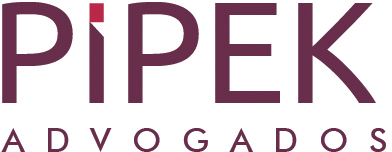keep up to date
Stay up to date with relevant labor issues
How will the Labor Electronic Domicile work?
The Electronic Labor Domicile (DET) is provided for in article 628-A, of the CLT, and is intended to provide more agility, publicity and efficiency to communication between the Labor Inspection and employers. Even though it was already provided for in the CLT, however, the DET was only regulated this year (through Decree No. 11,905/2024) and will become mandatory for use from March 1st.
We emphasize that the DET is not to be confused with the Electronic Judicial Domicile (DJE), provided for in art. 246 of the Civil Procedure Code (CPC) and regulated by CNJ Resolution No. 455/2022, which is used for subpoenas within the scope of legal proceedings.
Communications within the scope of DET, in turn, are limited to the labor administrative sphere. Thus, the DET is intended, among other purposes, to inform employers about any administrative acts, tax actions, subpoenas and notices in general, and to receive electronic documentation required from the employer within the scope of administrative procedures and tax actions, dispensing with publication in the Gazette Federal Official (DOU) or sent by post.
Although the system is already in operation, its use will become mandatory from this Friday (03/1/2024), but only for employers belonging to groups 1 and 2[1] of eSocial. For employers in groups 3 and 4[2] and domestic employers, the mandatory use of DET begins on 05/1/2024.
All employers and entities subject to the Labor Inspection, whether or not they have employees, must register with the DET. Access to the system is through gov.br gold or silver accounts, and the employer may grant powers to a third party to access it on their behalf, through the Electronic Power of Attorney System – SPE.
With the beginning of the mandatory use of DET, it is essential that employers regularly check the system’s mailbox in order to be aware of any communications and avoid missing deadlines. The absence of consultation of electronic communications by the employer, within 15 calendar days after delivery, will constitute tacit awareness, in accordance with article 11, paragraph 5, of Decree no. 10,854/2021, and article 142, II, of MTP Ordinance No. 671/2021.
To minimize this risk, the employer must, upon first accessing the system, register a “keyword” and at least one contact email. The registered email address will receive messages with information about the delivery of important communications or official acts to the DET mailbox, and the keyword will be part of the identification of this message. For this reason, it is recommended that employers keep their contact details up to date. On the other hand, the employer’s registration data is presented as it appears in the Brazilian Federal Revenue database, with no possibility of changes via DET.
In addition to these functionalities, the system also displays notifications of which the employer has already become aware (expressly or tacitly), the documents requested and delivered during the tax action and the submission deadlines.
The remaining features of DET will be implemented and improved gradually. Among them, the adoption of the electronic format of the book “Labour Inspection”, referred to in paragraph 1 of article 628 of the CLT, is planned. The book will be renamed the Electronic Work Inspection Book – eLIT.
At this time, it is important that companies ensure that their CNPJ is properly linked to an individual’s gov.br account and update their contact details at DET. To have access to the entire progress of notifications at DET, authentication in the gov.br account must be done using the user’s corporate profile (CNPJ).
Our team is available for any additional clarifications on the topic.
Contributed to this article: Luciana de Azevedo Granato, lawyer in the consultancy area, and Isabella Magano, partner.
[1] Group 1: companies with annual revenues exceeding R$78 million; Group 2: business entities with revenue in 2016 of up to R$78,000,000.00 (seventy-eight million) and that do not opt for Simples Nacional.
[2] Group 3: legal entities – employers opting for Simples Nacional and non-profit entities; and individual employers (except domestic workers) and individual rural producers; Group 4: public bodies and international organizations.
